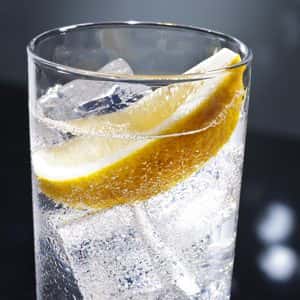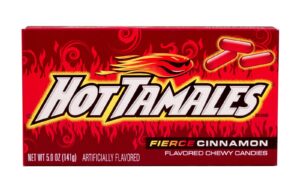
Have you ever been awakened from a deep sleep by sudden excruciating pain in your leg? In an instant, your sleep is interrupted and you are desperate for relief. A good friend described it as immediate agony. The leg cramp was so painful he could not get out of bed. It took over 20 minutes for the pain to begin to subside. Would the quinine in tonic water have 1) prevented the cramp in the first place or 2) eased the pain faster once the pain started?
Why Would Quinine in Tonic Water Help Against Leg Cramps?
It is not entirely clear why some people are so susceptible to such nighttime misery. One theory is that vital minerals such as potassium, magnesium or sodium get out of balance. Another is that muscle fatigue from exercise takes time to make itself known. My friend had been riding his stationary bicycle just before climbing into bed.
Regardless of the cause, doctors have little to offer for relief. In past decades, they were able to prescribe the herbal medicine quinine. Then the FDA banned its use for anything other than malaria.
This reader is mad as hell about the FDA’s decision:
Q. You’ve written about nighttime leg cramps, which have been troubling me lately. Even turning over in bed to relieve hip pain gets the cramps going, and I have to jump out of bed to try to stop them.
Many years ago, my doctor would order quinine. After taking it for a few nights, I’d be cramp free for months, but the FDA took it off the market.
I don’t understand why it can’t be prescribed any more. OTC meds do nothing for cramps. Some people take marijuana as medicine, so why not quinine?
A. Quinine was once a mainstay of treatment against malaria. Doctors also prescribed it for leg cramps. At one time, quinine was indeed sold over the counter for cramps.
It can cause serious side effects, though. Some people develop dangerous allergies, irregular heart rhythms or life-threatening anemia. Others may experience headaches, changes in vision, tinnitus, rash, itching, nausea and liver damage. If taken during pregnancy, quinine sometimes causes birth defects.
All that led the FDA to ban its use in OTC cramp remedies in 1994. Subsequently, the agency has prohibited doctors from prescribing quinine for anything other than malaria. The reasoning is that malaria can be life-threatening and is therefore worth the risk of side effects. Leg cramps, while painful, are not life-threatening.
Home Remedies, Including Quinine in Tonic Water, Overcome Cramps:
The lack of approved treatments explains why home remedies are so popular for muscle cramps.
One reader reported:
“For many years I experienced very severe leg cramps. My physician suggested drinking tonic water. For the past year, I have drunk about 3 ounces of diet tonic water every night and have had NO leg cramps.”
Most scientists probably cannot explain how the very small amount of quinine found in 3 ounces of tonic water would be effective. When doctors prescribed quinine for cramps, the usual dose was 200 to 300 mg in a pill. Tonic water contains approximately 80 mg of quinine in an entire liter, meaning that 3 ounces should have less than 10 mg of quinine.
Other readers have also found tonic water helpful.
Here is one report:
“My doctor recommended tonic water for nocturnal leg cramps. It works every time very quickly. In less than five minutes I get relief and can go back to sleep. I suffer NO pains if I drink half a glass before I go to bed.”
Is There a Scientific Explanation for the Effectiveness of Quinine in Tonic Water:
We believe that the anti-cramp benefit may be due to the bitter taste of quinine. Strong flavors, such as vinegar, capsaicin or ginger, stimulate special channels on the nerves (transient receptor potential aka TRP channels). This activity can interrupt the muscle contractions of cramps.

We recently received a message from a reader who reported benefit from eating spicy candy called Hot Tamales. We believe that this candy, with its strong flavor, triggers TRP channels. You can read more about this mechanism at this link. You will find out how two renowned neuroscientists discovered the “HotShot” solution to leg cramps.
What works for some people, though, does not work for others. Many visitors to our website report that swallowing a teaspoon of mustard relieves muscle cramps almost like magic.
Pickle brine also has its supporters:
“Every time I get a charley horse I take a few sips of juice from a jar of pickles and it is gone within minutes–even the worst leg cramps that wake me up at night.”
Again, we think all these home remedies for leg cramps are working through TRP channels!
Soap Stories to Beat Leg Cramps:
Then there are the soap devotees. They swear that putting a bar of soap under the bottom sheet in the neighborhood of their calves staves off nighttime leg cramps.
Here’s one story:
“My husband was having severe leg cramps at night. Several times he woke up screaming from the pain. When I read about soap on your website, I thought we had nothing to lose.
“My husband had already gone to sleep when I slid the bar of soap under the sheet near his legs. That night: no cramps. After a few days without cramps, I told him about the soap. He laughed but did not remove it. Since he didn’t know about it, it can’t have been a placebo action.
“I work for six doctors. When I told them about it, five of them laughed at me. I think one went out secretly and bought himself a bar of soap.”
Learn More:
You’ll find more details on these and other ways to quell nighttime leg cramps in our book, Quick and Handy Home Remedies (more information at this link). You will also find simple home health remedies for conditions as diverse as:
- Allergies & Arthritis to
- Bursitis & Body Odor to
- Constipation & Cold sores to
- Gas & Gout to
- Hypertension and Hot Flashes
Here is a link to find out about this and other publications from The People’s Pharmacy
Share your own leg cramp success story below in the comment section!
Citations
- Behringer, M., et al, "Effects of TRPV1 and TRPA1 activators on the cramp threshold frequency: a randomized, double-blind placebo-controlled trial," European Journal of Applied Physiology, Aug. 2017, doi: 10.1007/s00421-017-3653-6

